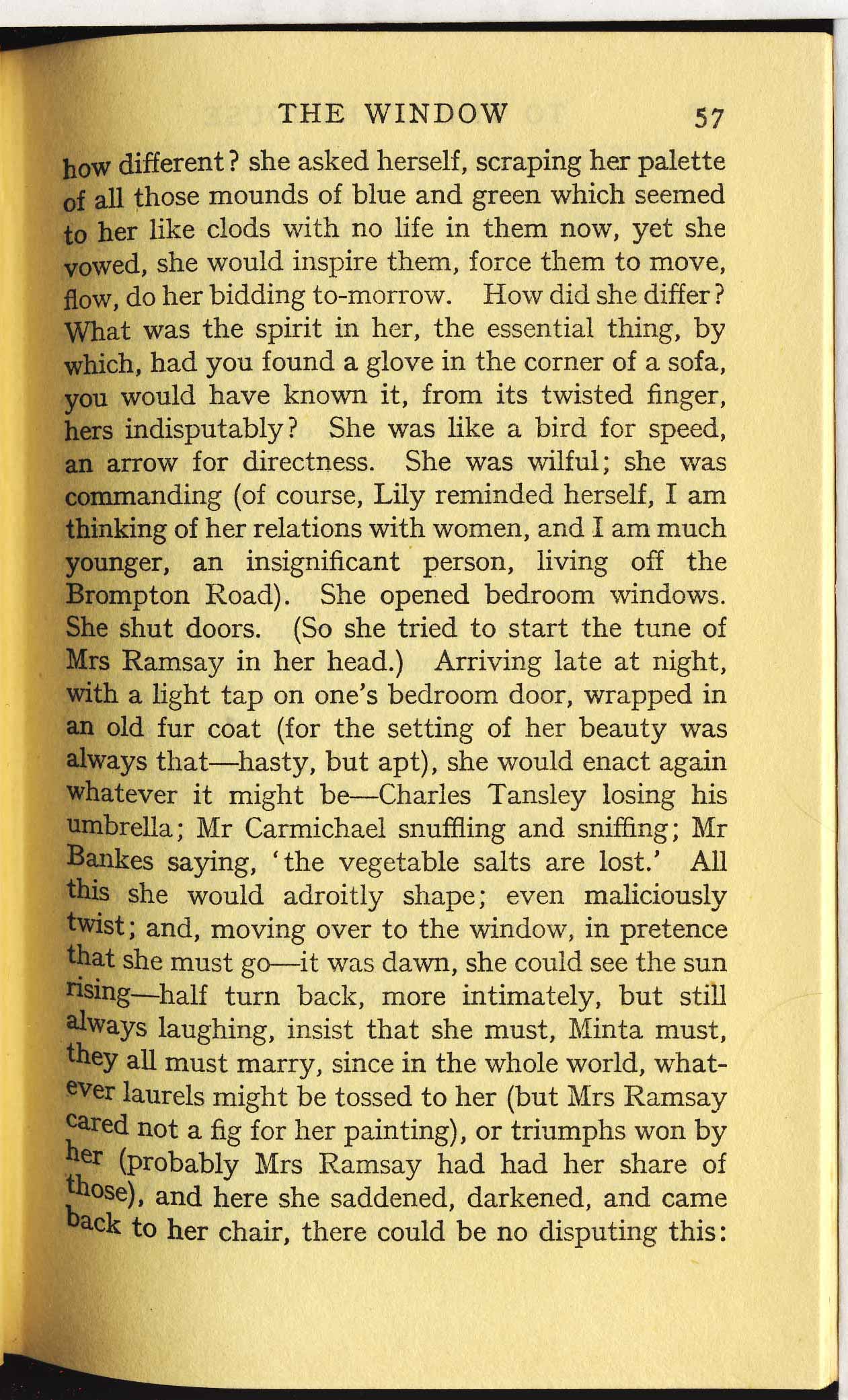
THE WINDOW 57how different? she asked herself, scraping her paletteof all those mounds of blue and green which seemedto her like clods with no life in them now, yet shevowed, she would inspire them, force them to move,flow, do her bidding to-morrow. How did she differ?What was the spirit in her, the essential thing, bywhich, had you found a glove in the corner of a sofa,you would have known it, from its twisted finger,hers indisputably? She was like a bird for speed,an arrow for directness. She was wilful; she wascommanding (of course, Lily reminded herself, I amthinking of her relations with women, and I am muchyounger, an insignificant person, living off theBrompton Road). She opened bedroom windows.She shut doors. (So she tried to start the tune ofMrs Ramsay in her head.) Arriving late at night,with a light tap on oneŌĆÖs bedroom door, wrapped inan old fur coat (for the setting of her beauty wasalways thatŌĆöhasty, but apt), she would enact againwhatever it might beŌĆöCharles Tansley losing hisumbrella; Mr Carmichael snuffling and sniffing; MrBankes saying, ŌĆśthe vegetable salts are lost.ŌĆÖ Allthis she would adroitly shape; even maliciouslytwist; and, moving over to the window, in pretencethat she must goŌĆöit was dawn, she could see the sunrisingŌĆöhalf turn back, more intimately, but stillalways laughing, insist that she must, Minta must,they all must marry, since in the whole world, what-ever laurels might be tossed to her (but Mrs Ramsaycared not a fig for her painting), or triumphs won byher (probably Mrs Ramsay had had her share ofthose), and here she saddened, darkened, and cameback to her chair, there could be no disputing this:









